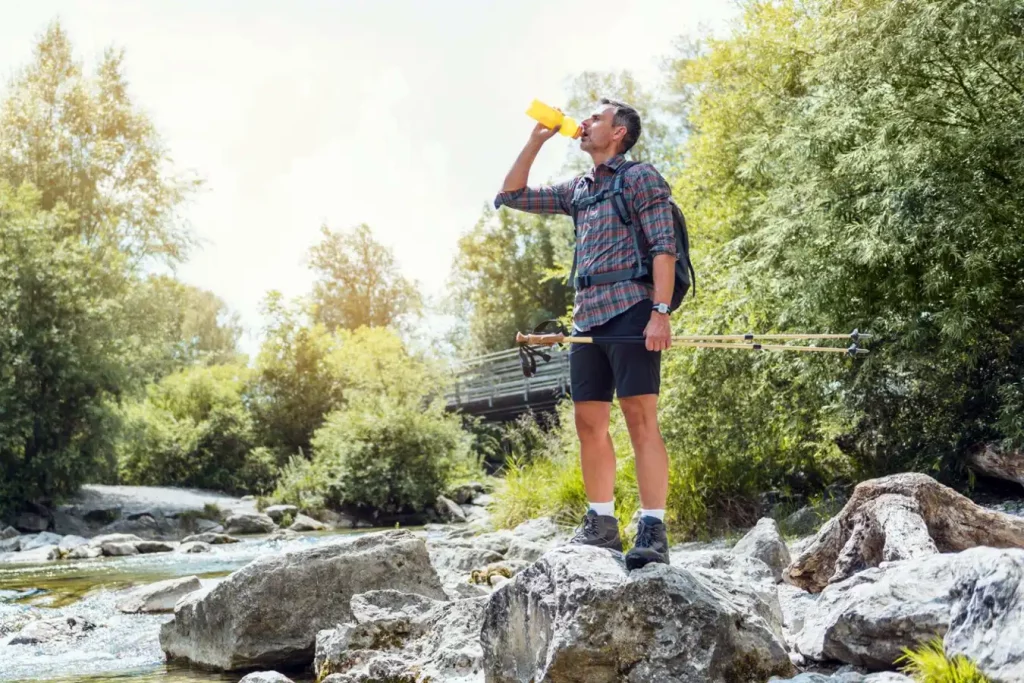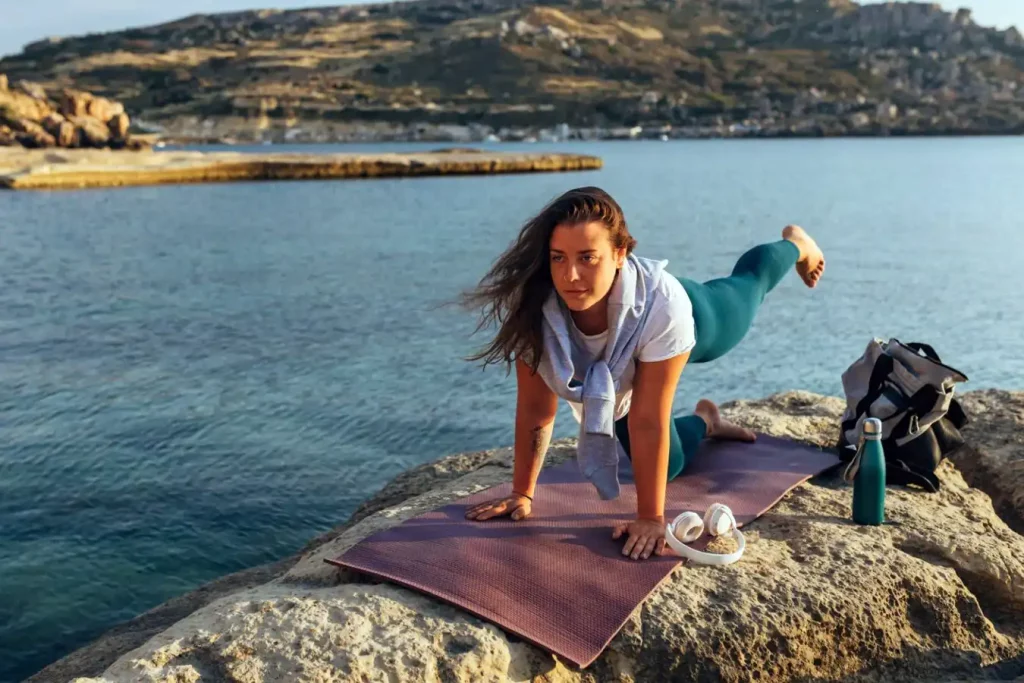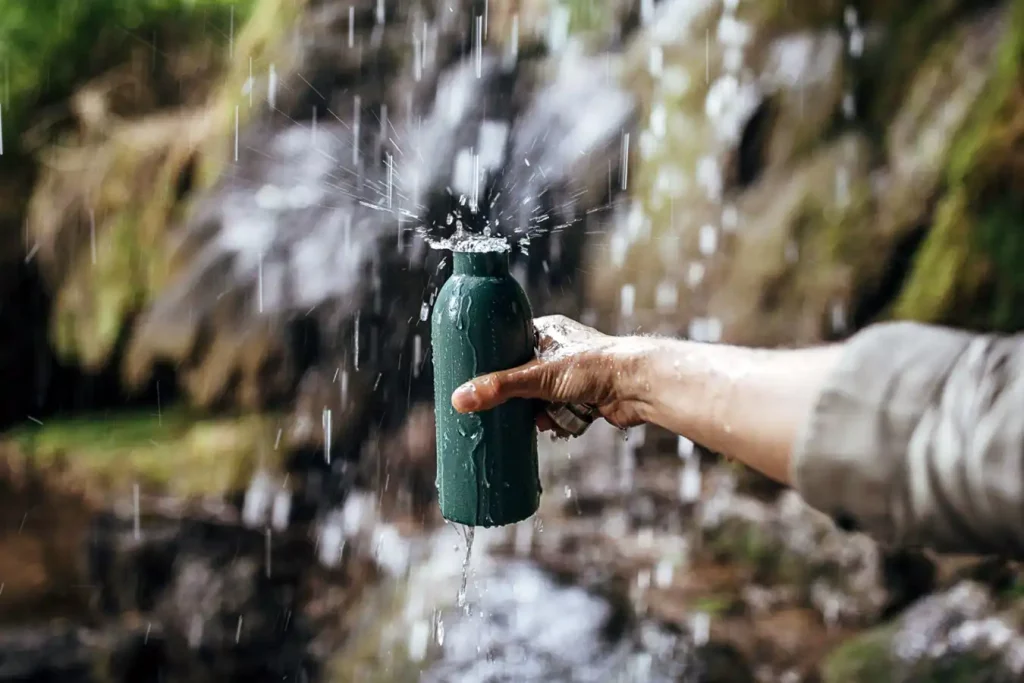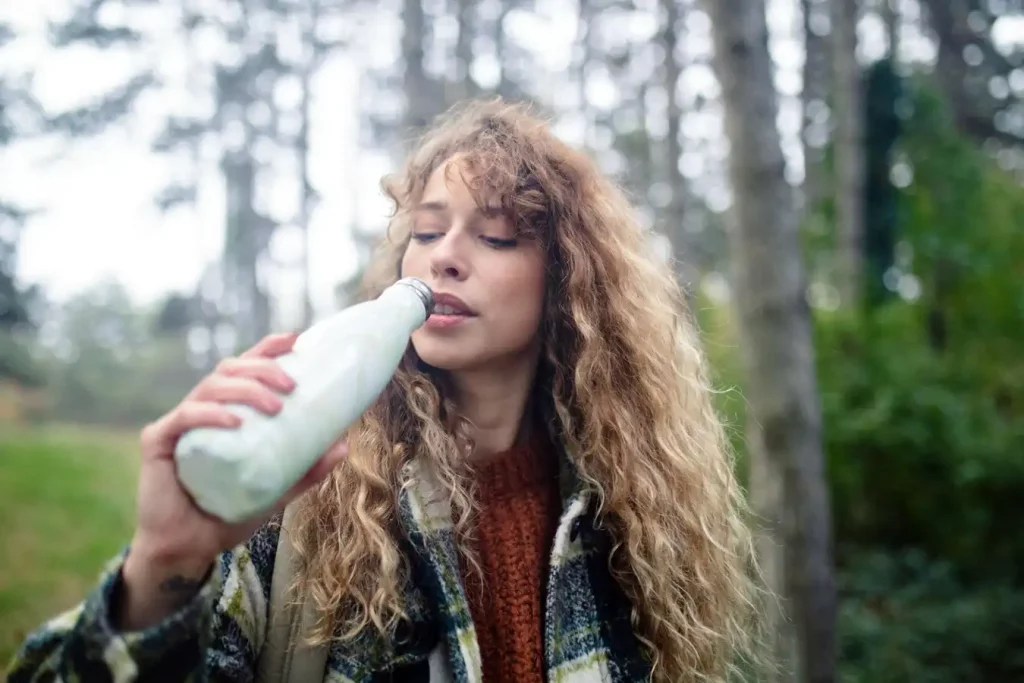How much water per day camping is a question that perplexes many adventurers as they prepare for the great outdoors.
It’s about staying hydrated and safe, not just soothing your thirst.
Whether you’re a seasoned explorer or planning your first camping trip, understanding your daily water needs is crucial.
Let’s get started on meeting your hydration needs while enjoying the beauty of nature.
Factors Influencing Water Needs
The amount of water you need during your camping trip depends on several factors. These range from the climate of your camping location to your physical activity levels, and even personal factors like age and health.
Climate and Weather Conditions
The first thing to consider when calculating your water needs is the weather condition and the climate of the camping area. If you’re camping in hot, dry, or high-altitude conditions, your body will likely need more water to compensate for the higher rate of perspiration.
For example, when hiking in the Grand Canyon during summer, a hiker may need as much as a gallon (about 4 liters) of water per day, due to high temperatures and low humidity. However, if you’re camping in a cooler climate or during a milder season, your water intake could be less.
Physical Activity Levels
Secondly, think about the activities you plan to engage in. If you’re planning a relaxing weekend with minimal physical activity, your water needs would be similar to those on an average day, which is approximately 2.7 liters for women and 3.7 liters for men according to the National Academies of Sciences. However, if you’re planning to hike, climb, or engage in other strenuous activities, your water intake will need to increase to replenish the fluids lost through sweating.
For instance, during an intense mountain hike, it’s advised to consume about 500ml (or half a liter) of water every hour. Therefore, if the hike lasts for 6 hours, that’s an additional 3 liters on top of your regular daily intake.
Personal Factors: Age, and Health
Lastly, personal factors like your age, gender, and health status also play a role in your water needs. Pregnant women or those breastfeeding may need to consume more water, while individuals with certain health conditions might have restrictions on their fluid intake.
Know more: What Type of Water Bottle is Safest
General Guidelines on Water Intake
Daily Water Intake Recommendations
Water is the life force that keeps us going, and this is especially true when you are camping. The general recommendation for daily water intake for healthy adults is about 3.7 liters (or about 13 cups) for men and 2.7 liters (or about 9 cups) for women. However, these numbers can vary based on various factors including age, sex, weight, and physical activity levels.
Adjustments for Camping Conditions
When camping, your water needs can significantly increase. Factors such as higher physical activity levels, hotter or drier climate, and higher altitude can all contribute to increased water loss from your body. A good rule of thumb for camping is to add an extra 1 to 2 liters of water to your daily intake for each hour of strenuous activity.
Hydration Needs for Different Camping Activities
Water Needs for Hiking
Hiking is a common activity during camping trips and it can be a significant water depleter. For an intense hike, you might need to drink around 0.5 to 1 liter of water per hour.

Water Needs for Biking
Cycling can also lead to increased water needs. The exact amount can vary, but a good starting point is to aim for about 0.5 to 1 liter per hour, particularly on hot and dry days.
Water Needs for Swimming
Although it might seem counterintuitive, swimming can also lead to dehydration. This is because the water around you can draw moisture from your body, especially if you are swimming in salt water. Aim to drink about 0.5 liters of water per hour, and always hydrate before and after your swim.
Water Needs for Other Activities
Activities like yoga, fishing, bird-watching, or photography might not seem strenuous, but even low-intensity activities can dehydrate you, particularly in hot or dry climates. A good practice is to sip on water regularly throughout the day, even if you’re not feeling thirsty.

For better understanding here’s a hydration table that will help you to check easily for your camping hydration needs.
| Camping Activity | Water Needed per Hour | Daily Water Needed (8 hours of activity) |
|---|---|---|
| Hiking | 0.5 – 1 liter | 4 – 8 liters |
| Biking | 0.5 – 1 liter | 4 – 8 liters |
| Swimming | 0.5 – 1 liter | 4 – 8 liters |
| Canoeing/Kayaking | 0.25 – 0.75 liters | 2 – 6 liters |
| Rock Climbing | 0.5 – 1 liter | 4 – 8 liters |
| Sitting/Resting | 0.1 – 0.3 liters | 0.8 – 2.4 liters |
In short, typically, you should aim for a minimum of 2-3 liters of water per person per day for drinking while camping, but it can vary based on weather, activity level, and personal needs.
Planning Your Water Supply
Calculating Total Water Needs
Planning your water supply for a camping trip is crucial. Begin by calculating your estimated water needs. This includes your basic daily intake and additional intake for physical activities. For instance, if you’re planning on hiking for three hours each day, you’ll need an additional 1.5 to 3 liters of water per day on top of your basic needs. Always add a little extra to your estimate to cover unforeseen needs.
Water Storage and Transport
Consider how you’ll store and transport your water. Bottles, bladders, and jugs are popular options. Make sure to choose lightweight and durable containers. Remember, water is heavy, so it’s crucial to distribute the weight evenly in your pack.
Accessing and Purifying Water in the Wild
Identifying Water Sources
When you’re camping, especially in backcountry areas, it’s wise to know how to find and purify water from natural sources. Streams, rivers, and waterfall can all be good sources of water, but it’s important to treat this water before consuming.

Methods for Purifying Water
There are various methods for purifying water, including boiling, using a portable water filter, or chemical treatments like iodine or chlorine tablets. Each of these methods has its pros and cons, so you’ll need to choose the one that best suits your situation.
Signs of Dehydration and Overhydration
Recognizing Dehydration
Dehydration can sneak up on you, especially during physical activities. Early signs include thirst, dry mouth, fatigue, and dark-colored urine. Severe dehydration can lead to symptoms like dizziness, rapid heartbeat, and fainting.
Recognizing Overhydration
Yes, it’s possible to drink too much water, though it’s less common. Overhydration can lead to hyponatremia, a condition where your body’s sodium levels become dangerously low. Symptoms include nausea, headache, confusion, seizures, and in extreme cases, coma.
What to Do in Case of Dehydration or Overhydration
If you notice signs of either dehydration or overhydration, it’s important to respond quickly. In the case of dehydration, find shade, rest, and slowly drink water with added electrolytes. For overhydration, stop drinking water and seek medical attention as soon as possible.
FAQs about Water per Day for Camping
How much water do you need per person per day camping?
How much water do I need for dry camping?
How much water do you need for a camping shower?
How much water should I bring backpacking?
Conclusion
In conclusion, hydration is more than just a matter of health when you’re camping – it’s a matter of safety, performance, and overall enjoyment. Whether you’re hiking, biking, swimming, or simply enjoying nature, you need to properly manage your water intake.
By understanding your body’s needs and the factors that influence them, you can ensure that you stay hydrated and healthy throughout your trip. So next time you head out into the wilderness, remember: plan ahead, drink smart, and stay hydrated!
To know more: What Food Should I Bring for 3 Days Camping


